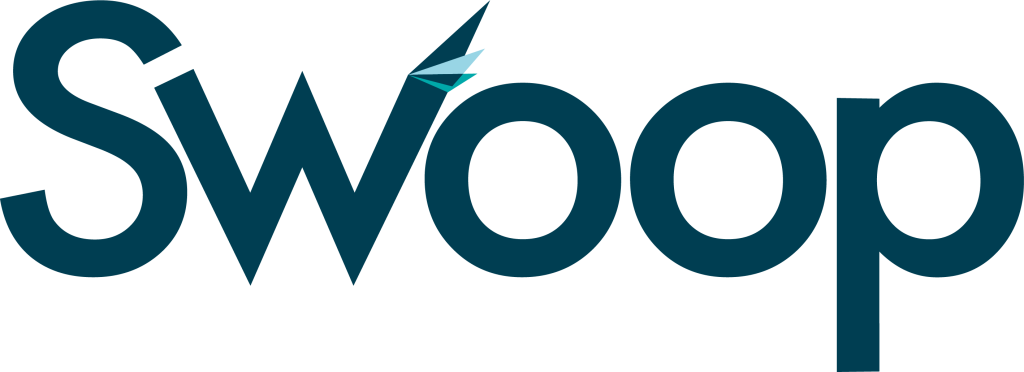Trying to find a loan for a business with no credit history? What about bad credit? If so, you are probably well aware of how challenging it can be. It’s not impossible, though – there are financial products designed for credit scores that are less-than-perfect. This article will explore the best no-credit or bad-credit business loans available. We will also touch on how to improve your credit over time.
☝IMPORTANT 2025 TIPS:
➔ Burdened by your debt load? You may qualify for up to 50% off debt relief. Reach out to Consolidated Credit Canada for more information.
➔ Did you receive a rejection from the bank on a business loan? Consider an alternative lender like Swoop. (Anticipate higher interest rates though!)
Can I get a business loan with no credit or bad credit?
The short answer is: yes. Although having no credit history or a poor credit rating can make securing a personal loan more difficult. The same is true for business loans because lenders typically rely on your (personal) credit score to determine how likely you are to repay the loan.
A low credit score – or no established credit at all – can make your business seem riskier. This means traditional lenders, like banks, may choose not to approve your loan application. In this case, your borrowing options become limited, resulting in higher interest rates or less favourable loan terms. But, you are not out of options. Alternative lenders, such as Swoop, do cater to individuals with bad credit or no credit history. Consider working with Consolidated Credit Canada.

Options for business loans with no credit or bad credit
Business loan options are available to your company (yes, even if you have a bad credit score. This remains true even if you have no credit at all). Several types of lenders offer solutions for individuals with little or no credit history – these include:
- Canada’s big five banks
- While difficult, some of Canada’s largest banks may offer small business loans to even those with a limited credit history. While requirements can be strict, having a business plan and collateral may help you secure funding – despite your bad credit. Consider checking the “Big Five” banks first (TD, RBC, CIBC, Scotiabank, and BMO) and credit unions first.
- Swoop Funding
- Swoop is a specialized business loan broker that accepts bad or no credit. They work with banks and alternative lenders to find you the best loan you can qualify for, based on your financial situation. They offers all types of loans, INCLUDING equipment and asset-based loans which many other lenders don’t offer. They can also provide larger loans than other lenders (800k+) too and they accept lower credit scores.
- Merchant Growth
- Merchant Growth offers financing solutions designed specifically for small businesses (5k to 300k loans). These options include merchant cash advances, lines of credit, and business loans. Merchant Growth works with borrowers who have bad credit or limited credit history, making them a great choice if traditional banks have turned you down. [See Merchant Growth review]
- Driven.ca
- Driven.ca provides fast and flexible business financing options with a minimum credit score of 600. As the “largest SMB lender in Canada,” they offer loans with a term of 3 to 24 months. [See Driven.ca’s review]
- SharpShooter Funding
- SharpShooter Funding is a broker that works with several alternative lenders. They focus on business loans for small and medium sized businesses – no minimum FICO score required. SharpShooter offers flexible repayment terms and approvals in under 72 hours, making them a reliable option for quick funding.
- Journey Capital
- Journey Capital offers fast funding, providing loans within 24 to 72 hours to those with a credit score of 600+. They specialize in offering variable and fixed-term loans to small businesses. [See Journey Capital’s review]
A word of caution…
The good news about alternative lenders is that they provide borrowing solutions for business owners with no credit history or a poor credit score. BUT, this does come at the cost of higher fees and less favorable loan terms – especially when compared to financing from traditional banks and credit unions. Alternative financing may come with higher interest rates. It can also have other additional expenses (processing fees, closing expenses, etc), which will raise the total cost of the loan. The repayment period might also be shorter, leading to higher monthly payments. And, as you likely already know, elevated payments are often challenging for small businesses. One way to get ahead is through partnering with a debt relief organization like Consolidated Credit Canada.
Here’s a table comparing getting a loan when you have good credit versus when you have a bad or no credit:
| Aspect | Credit |
|---|---|
| Loan Approval Likelihood | Good Credit: High likelihood of approval Bad Credit or No Credit: Low to moderate likelihood, depending on lender |
| Interest Rates | Good Credit: Lower interest rates (5-15%) Bad Credit or No Credit: Higher interest rates (15-30% or more) |
| Loan Terms | Good Credit: Longer terms (up to 5-20 years) Bad Credit or No Credit: Shorter terms (3-5 years) |
| Loan Amounts | Good Credit: Higher loan amounts available Bad Credit or No Credit: Limited loan amounts |
| Collateral Requirements | Good Credit: Often no collateral required Bad Credit or No Credit: Can sometimes requires collateral or higher security |
| Application Process | Good Credit: Simplified, streamlined Bad Credit or No Credit: More paperwork and checks |
| Access to Traditional Lenders | Good Credit: Broad access (banks, credit unions) Bad Credit or No Credit: Limited access; often alternative lenders |
| Types of Loans Available | Good Credit: Wide variety (SBA, business lines of credit, term loans) Bad Credit or No Credit: Limited options (microloans, secured loans, merchant cash advances) |
| Funding Speed | Good Credit: Moderate to fast Bad Credit or No Credit: Fast funding is possible, but costly options |
| Credit History Checks | Good Credit: Favorable checks due to good credit Bad Credit or No Credit: Extensive checks, often with additional documentation |
| Credit Score Requirements | Good Credit: 700+ generally Bad Credit or No Credit: 550+ accepted, or non-existent for no credit. |
| Lender Flexibility | Good Credit: More flexible repayment and refinancing options Bad Credit or No Credit: Less flexibility; more rigid terms |
| Additional Fees | Good Credit: Lower fees and minimal penalties Bad Credit or No Credit: Higher fees (origination, prepayment, etc.) |
Despite comparatively higher costs, many alternative lenders receive positive reviews for their customer service and quick approval process. Most are also CLA-certified, meaning they follow industry standards for responsible lending, giving borrowers some level of assurance. However, this accessibility comes at a cost, so carefully weigh these factors before committing.
For those businesses that can’t secure financing from banks or credit unions, alternative lenders, like Swoop, can be a reasonable trade-off. Yes, despite the increased costs. Regardless of your financing option, it’s important to clearly understand the total cost of borrowing and its potential impact on your business.

How to improve bad credit for better loan terms
Improving a poor credit score requires persistence, but it holds importance. Why? Because it can significantly affect your ability to access better loan terms.
How to improve your credit score:
- Make on-time payments: Payment history is a key factor in your credit score.
- Reduce your credit utilization ratio: Keep your credit balances lower than your available limit. Ideally, keep this ratio below 30%.
- Pay off existing debts: This shows lenders that you can effectively manage your financial obligations. In this case, it can be helpful to consolidate your debts.
- Regularly monitor your credit report: Check for errors and dispute any inaccuracies.
Over time, these steps can help you build a stronger credit profile. In turn, this opens up more favorable financing opportunities for both you and your business.
☝IMPORTANT 2025 TIPS:
➔ Burdened by your debt load? You may qualify for up to 50% off debt relief. Reach out to Consolidated Credit Canada for more information.
➔ Did you receive a rejection from the bank on a business loan? Consider an alternative lender like Swoop. (Anticipate higher interest rates though!)
The bottom line – Choosing the right lender
Securing a business loan without a solid credit history might pose challenges, but let me remind you – it’s not impossible! By exploring alternative lenders and specialized financing options, you can find a solution to meet your business’ needs.
Not all lenders are created equal, and they don’t all offer the same types of loans. Determine if you are looking for startup loans, equipment loans, working capital loans, a line of credit or merchant cash advance (MCA) first, as that will give you a better idea of which lender to work with. Also, look for lenders who have offices in your own city or province, as you may get better options. Ontario, BC, Alberta, Quebec and all other provinces have their own government programs, grants and loans you may qualify for.
Also, consider working to boost your credit score. This will help to open up a wider range of opportunities for your future financing needs. Remember, persistence and a proactive approach can help you navigate business financing challenges and set your company on the path to success.


